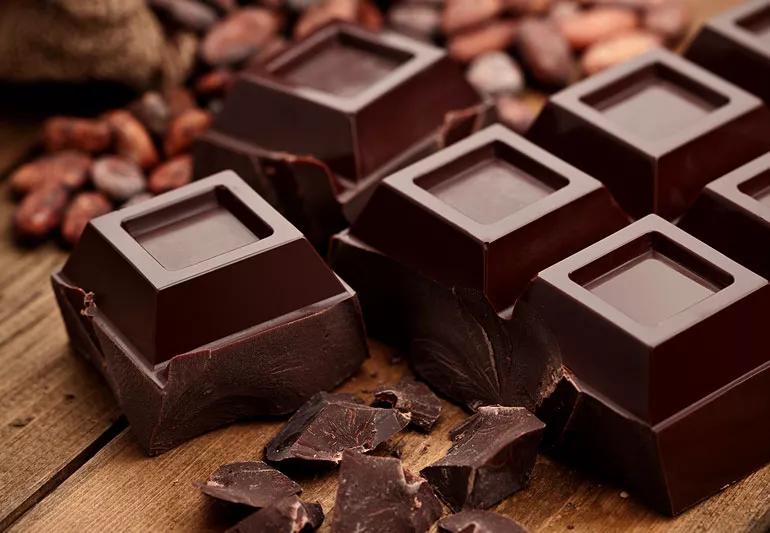
Let’s face it — chocolate is one of life’s most decadent treats. No matter how you enjoy it — as a candy bar, in a hot drink, drizzled over ice cream — chocolate brings joy.
Cleveland Clinic is a non-profit academic medical center. Advertising on our site helps support our mission. We do not endorse non-Cleveland Clinic products or services. Policy
Although chocolate is delicious, it’s not always nutritious — or even real chocolate at all. White chocolate, for example, doesn’t contain cocoa solids. That means it’s much more of a confection than anything else.
But dark chocolate benefits are numerous, as dietitian Devon Peart, MHSc, BASc, RD, explains.
When compared with other kinds of chocolate, dark chocolate stands tall. “Dark chocolate has lower added sugar and fat than milk or white chocolate,” says Peart, while noting it also boasts an abundance of beneficial antioxidants called flavonoids.
At their core, milk chocolate and dark chocolate have similar ingredients, including cocoa butter, sugar and cocoa solids. The two kinds of chocolate differ in their percentage of cocoa solids, however.
“Dark chocolate has between 50% and 90% cocoa solids,” says Peart. “And milk chocolate has between 10% and 50%.”
Unsurprisingly, the percentage of cocoa solids can affect the magnitude of dark chocolate’s benefits. “The higher percentage of cocoa solids, the more flavonoids and the lower sugar,” Peart explains. “If you’re doing 75% or 80% dark chocolate, there’ll be less added sugar than if you were at 50% dark chocolate.”
In addition to being lower in sugar, here are other dark chocolate benefits:
Flavanols are a type of flavonoid that’s found in plants such as the cacao tree. These trees produce the cacao beans used to make chocolate. “Flavanols are abundant in cacao beans,” says Peart. “The cacao beans are fermented and roasted, producing what we call cocoa beans. We make cocoa solids from those.”
Dark chocolate “contains two to three times more flavanol-rich cocoa solids as compared to milk chocolate,” Peart adds. “It’s significantly higher.”
That’s a huge health benefit for your heart. Flavanols are related to the production of nitric oxide, which relaxes your blood vessels and improves blood flow. In turn, this also lowers blood pressure.
Better blood flow is also great for our overall health. “Improved blood flow means protection from heart disease,” says Peart. “It’s also good for cognition [understanding thought], because you’re having more blood flow to the brain.”
Due to their antioxidant properties, flavanols are also beneficial in fighting cell damage relating to aging. And although more research is needed, scientists have also found some evidence that flavanol-richer chocolate can increase your insulin sensitivity. “The more you are sensitive to insulin, the lower your diabetes risk,” Peart states.
Dark chocolate is packed full of important minerals, including iron, magnesium, zinc, copper and phosphorus. In your body, these minerals are used to support factors such as immunity (zinc), can help keep your bones and teeth healthy (phosphorus), and contribute to better sleep quality (magnesium).
As its name implies, milk chocolate contains some form of milk or milk solids. But dark chocolate is generally considered non-dairy. That means it’s a good option if you have a sensitivity to milk products or try to keep a dairy-free diet. Peart notes that manufacturing processes could introduce dairy products into the chocolate, so it’s best to check the ingredient list before purchase.
Compared to other sweet treats, dark chocolate is high in fiber. “In a small amount of dark chocolate (about an ounce), there’s are about four grams of fiber,” Peart says.
The antioxidants in dark chocolate improve blood flow to your skin and protect it from sun damage. A small study even found that eating chocolate high in flavanols — that is, dark chocolate — can protect your skin from the effects of UV (ultraviolet) rays.
Good news: If you feel better after eating dark chocolate, there’s a scientific reason for that. Dark chocolate has long been associated with feelings of pleasure and enjoyment. Those feelings may originate from what are called polyphenolic compounds.
“Polyphenols are antioxidants that lower cortisol, a stress hormone,” Peart explains. “So there are mood-enhancing benefits to eating dark chocolate.” In fact, a study published in January 2022 found that participants who ate 85% dark chocolate daily maintained better overall mood than others who ate chocolate with less cocoa — or no chocolate at all.
At higher percentages, dark chocolate has a bitter taste and contains more caffeine.
“Caffeine can exacerbate reflux, or heartburn,” says Peart. “If you have a sensitivity to caffeine or don’t want to have caffeine because it’s a stimulant, you should stay away from dark chocolate.”
The amount of caffeine in dark chocolate is far less than the amount you’ll find in coffee, though. “Even if you had two ounces of 70% dark chocolate, there would be around 50 to 60 milligrams of caffeine,” Peart says. “In an eight-ounce cup of coffee, which is much smaller than most people drink, there’s 100 to 200 milligrams.”
Dark chocolate also contains a “moderate amount of saturated fat,” Peart adds, which is the kind associated with high cholesterol. “But the heart-protective benefits of flavanols are thought to outweigh the downside of the saturated fat in dark chocolate.”
Peart says a recommended dark chocolate serving size is between one and two ounces, which is about 30 to 60 grams. That’s a bigger amount of chocolate than you might think. For example, one ounce is the equivalent of three thin squares of chocolate broken off from a bigger bar. Dark chocolate is also best savored slowly — a little goes a long way.
As with any sweet treat, moderation is key. “One misconception often is, ‘Well, dark chocolate is good for me, so I can have however much I want,’” Peart says. “There are some benefits to dark chocolate in terms of antioxidants, like the flavanols. But they’re not compelling enough that we would say you should definitely include this in your diet. Pound for pound, it’s a high-calorie food. It’s definitely something to enjoy in moderation.”
Peart recommends thinking about your dark chocolate consumption much like you would consider your consumption of nuts. Both are filling — meaning, you don’t have to eat as much to feel satisfied — and high in fat, so they are high calorie. You want to stick to smaller portions.
“That being said, the reason why I do often recommend dark chocolate as a good option for a snack or a treat is because it has a strong bitter flavor,” Peart says. “We don’t need a lot of chocolate to enjoy it.”
Because of this strong flavor, dark chocolate is admittedly an acquired taste. “When people first have it, they usually don’t like it,” Peart says. She recommends starting at a less-bitter dark chocolate and moving up. “Start by having 50% dark chocolate and then move up to 65% and then 70% and work your way up.”
Although there are some downsides, dark chocolate is overall a healthier choice if you’re looking for a delicious way to finish off a meal. “And you’ll need less of it to get satisfaction than you would from other sweets,” Peart says. “Dark chocolate is comforting. It signals to your brain that you’re satisfied and finished. And it is satiety-inducing [feeling satisfied], so you are more likely to feel like you’ve had enough.”
Learn more about our editorial process.
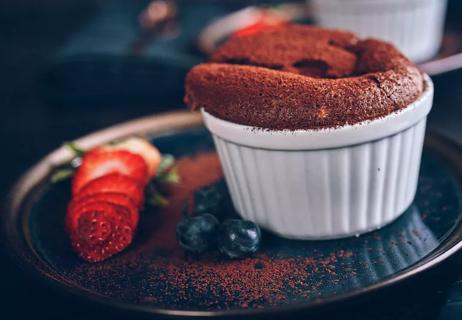
Only 130 calories per serving, this dessert deserves your attention
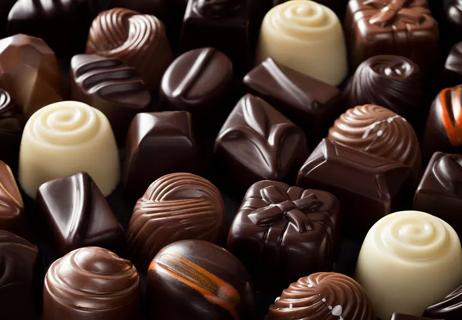
A closer look at what's inside your favorite candy
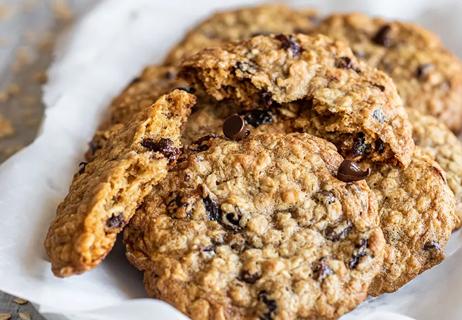
A heart-smart, delicious dessert you're sure to reach for every time
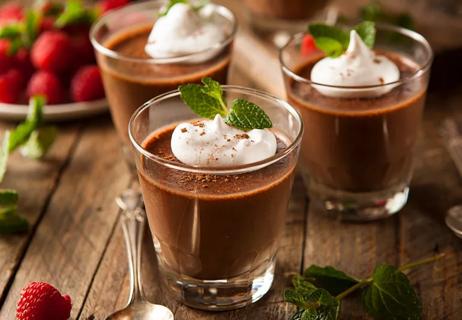
A sweet treat that you can whip up in a food processor

A dietitian breaks down claims about their health benefits

A well-balanced diet with anti-inflammatory foods can help reduce flare-ups and severity of psoriasis symptoms
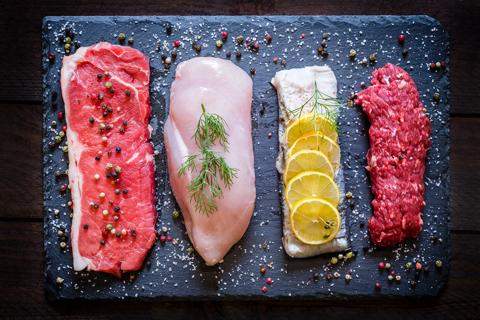
This vital nutrient helps your brain and body in many ways — and most of us need more of it
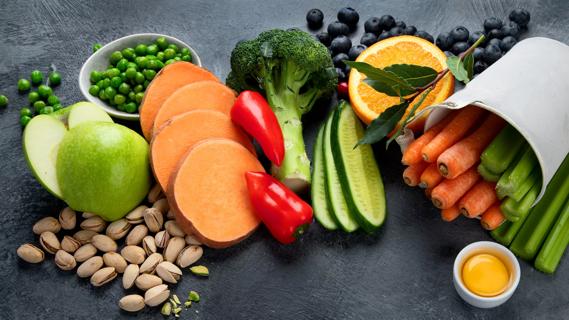
This powerful carotenoid can help with your eye and skin health, LDL reduction and cognitive function

Your metabolism may torch 1,300 to 2,000 calories daily with no activity

A gentle touch in all the right places may help drain your sinuses